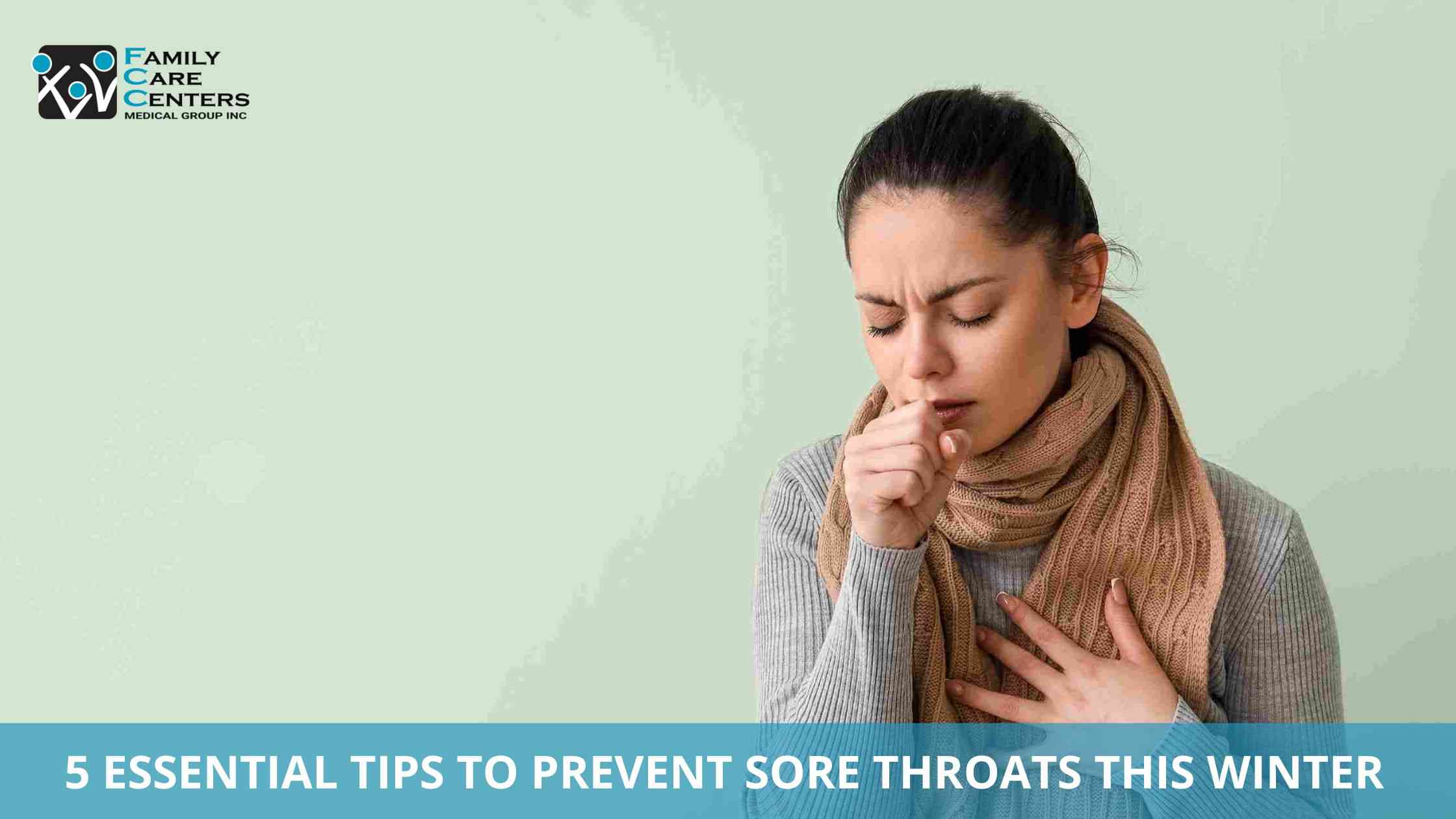Sore throats become more common as winter approaches, often due to colder temperatures and low humidity. This can significantly impact daily activities like speaking and swallowing, and may disrupt sleep patterns. Understanding the causes, recognizing symptoms, and implementing preventive measures can help reduce suffering from sore throats during the winter months.
Causes of Sore Throat
- Viral infections (common cold, flu, and even COVID)
- Bacterial infections (strep throat)
- Allergies
- Dry air
- Smoking or exposure to secondhand smoke
- Acid reflux
Symptoms of Sore Throat
- Pain or scratchy sensation in the throat
- Difficulty swallowing
- Swollen glands in the neck or jaw
- Redness in the back of the mouth
- Hoarse or muffled voice
Essential Tips to Prevent Sore Throat
- Practice good hygiene: Wash hands frequently with soap and water for at least 20 seconds. This helps remove germs that can cause infections leading to sore throats.
- Stay hydrated: Drink plenty of water and warm liquids. Proper hydration helps maintain moisture in the throat, reducing irritation and discomfort.
- Use a humidifier: Adding moisture to the air can prevent dryness in the throat, especially during winter when indoor heating systems can create dry environments.
- Avoid irritants: Minimize exposure to smoke, strong cleaning products, and other airborne irritants that can inflame the throat.
- Boost your immune system: Maintain a balanced diet rich in vitamins C and D, get adequate sleep, and exercise regularly to support your body's natural defenses against infections.
Natural or Home Remedies for Soothing a Sore Throat
- Salt water gargle: Mix 1/4 to 1/2 teaspoon of salt in 8 ounces of warm water. Gargling with salt water can help reduce swelling and provide temporary relief.
- Honey: A teaspoon of honey can help coat and soothe the throat. Note: Do not give honey to children under one year of age due to the risk of infant botulism.
- Herbal tea: Chamomile, ginger, or licorice root tea can help soothe the throat and provide hydration.
- Lozenges or hard candy: These can stimulate saliva production, which helps keep the throat lubricated.
Treatment Options
While many sore throats resolve on their own, persistent or severe symptoms may require medical attention. Healthcare providers can offer appropriate treatment based on the underlying cause of the sore throat.
Frequently Asked Questions
Q: When should I see a doctor for a sore throat?
A: If your sore throat lasts more than a week, is accompanied by a high fever, or causes significant difficulty in breathing or swallowing, it’s important to consult a healthcare provider. Additionally, sore throats are often an early symptom of COVID-19, frequently appearing alongside nasal congestion, fever, body aches, and fatigue. If you experience any upper respiratory symptoms, including a sore throat, consider using a home COVID-19 test to rule out infection. Early identification and care can help manage symptoms effectively and prevent further complications.
Q: Can sore throats be contagious?
A: Yes, if caused by viral or bacterial infections, sore throats can be contagious. Practice good hygiene to prevent spreading the infection to others.
Q: Are antibiotics necessary for treating a sore throat?
A: Antibiotics are only effective against bacterial infections, such as strep throat. Most sore throats are caused by viruses and do not require antibiotic treatment.
By implementing these preventive measures and understanding when to seek medical attention, you can reduce the likelihood and impact of sore throats this winter season.
Are Sore Throats Troubling Your Health? Visit FCCMG for Quick Relief
If you're experiencing sore throat symptoms, visit one of our Family Care Centers Medical Group urgent care locations in Fountain Valley, Irvine Woodbridge, or Costa Mesa, CA. We're here to help you feel better quickly!


